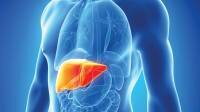A recently submitted research study: “Career Preferences and Research Attitude among Pakistani Medical Students” by Umair Mushtaq et al. sheds light on interesting facts which define factors affecting Pakistani medical students and the career choices they make. It also points out the continued desire of students to leave the country after completion of medical school and a severe lack of evidence-based scientific research in medical sciences.
The cross-sectional study, conducted in Allama Iqbal Medical College, Lahore involved 1123 students. Allama Iqbal Medical College is one of the top public sector medical schools in Pakistan. Its student body consists of bright students from all parts of the country and socio-economic background. Because Allama Iqbal Medical College is one of 17 public sector colleges in Punjab, this study can be taken as a representative sampling of students in all public medical colleges in Punjab.
The study found 57% of the students had fathers who received university education. 25% student’s fathers had F.Sc (or equivalent) education, and 5% of the students had illiterate fathers.
Thirty-five percent of the student’s mothers attended university, while 29% completed F.Sc (or equivalent) and only 9% were illiterate. This information reaffirms the notion that higher education in parents results in higher education for children. About 15% of the students had at least one parent who is a medical doctor, while 4% had both parents who were physicians.
The median family income of the 1,123 students who participated in the study was a meager Rs. 40,000. This proves that majority students who attend top tier public institutes are from lower to middle class families. Only 23% of the student’s were from families which earned more than Rs 10250 per month. Deserving students who work hard and meet the merit are being rewarded regardless of their family’s income.
A startling fact reveals close to 30% student’s opting for medical school not as a personal choice but to satisfy their parents’ wishes. Although the students meet the merit and pre-requisites for attending medical school - their passion and drive for advancement in the field has to be questioned.
In terms of future choice of profession, 49% of students wanted to pursue a career in Medicine after completion of medical school, while 29% intended to pursue Surgery, with the remainder showing interest in other allied specialties.
Close to 58% of the students wanted to pursue post graduate training abroad. The trend was higher in males (61%) as opposed to females (55%). The desire to go abroad for further training stems from various factors, which were not investigated in this study. But better salaries and training are well known reasons. Further studies need to be conducted to define and then address the issues that make students leave the country.
Scientific and evidence based research and attitudes towards it are grim in our medical institutes. The study revealed only 20% students ever participated in a research project and only 10% students had ever in written a scientific paper. Although over 80% students felt they can plan and conduct research under supervision - the application and supervision is clearly not present. Clinical and basic science research forms the basis of progress in medical sciences, without it the profession of medicine is a glass half empty.
This study reveals important factors relating to and choices made by medical. The brain drain from the country is an issue that needs to be addressed as the desire to go overseas for further training and practice and eventual emigration dominates our students. It is also unfortunate that research is not emphasized in our curriculum. If more emphasis is placed on evidenced based research, students will be molded into better clinicians and can play a significant role in advancing the field of Medicine in the country and abroad.
The writer is a doctor based in Toronto, Canada.



















